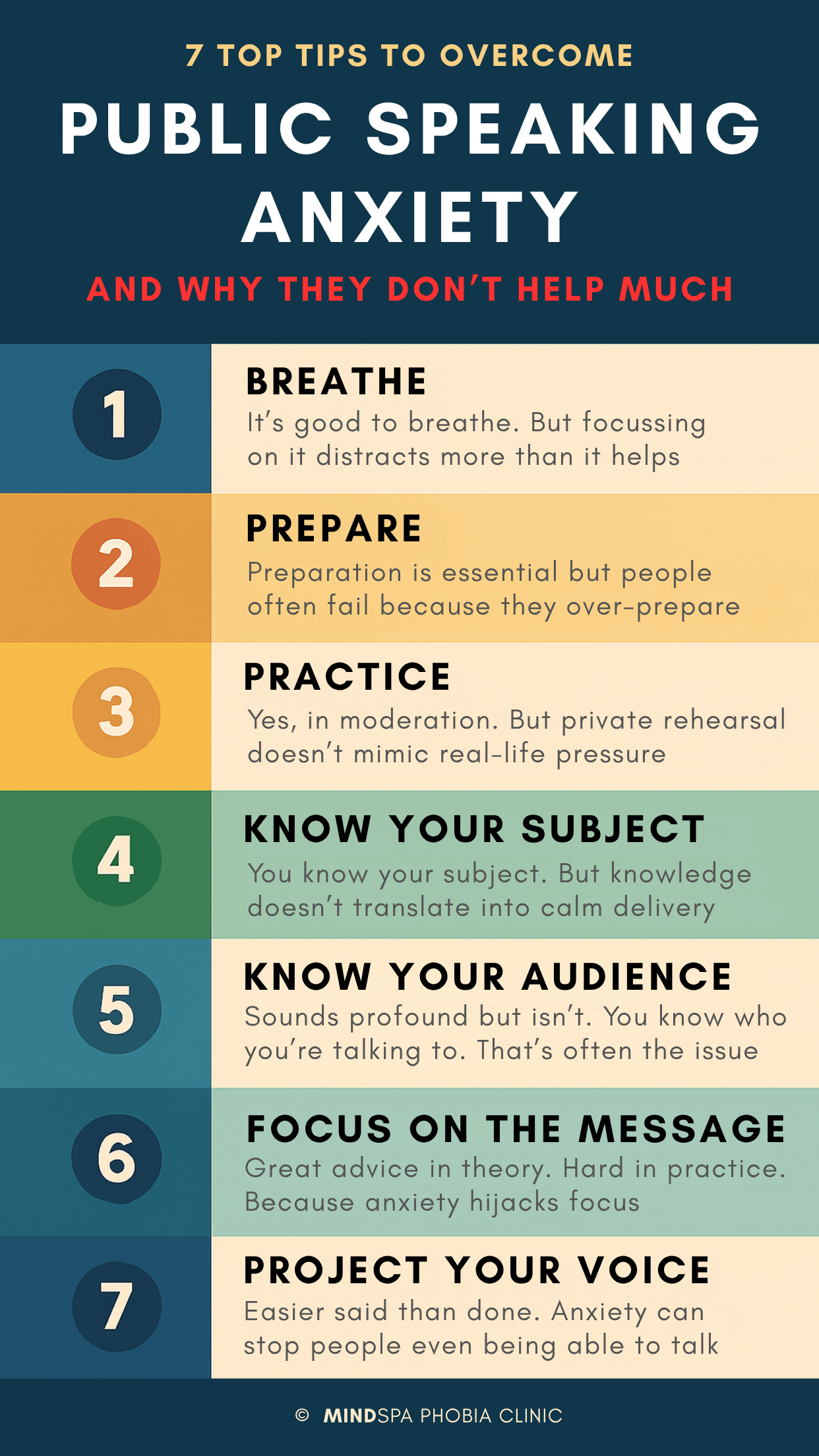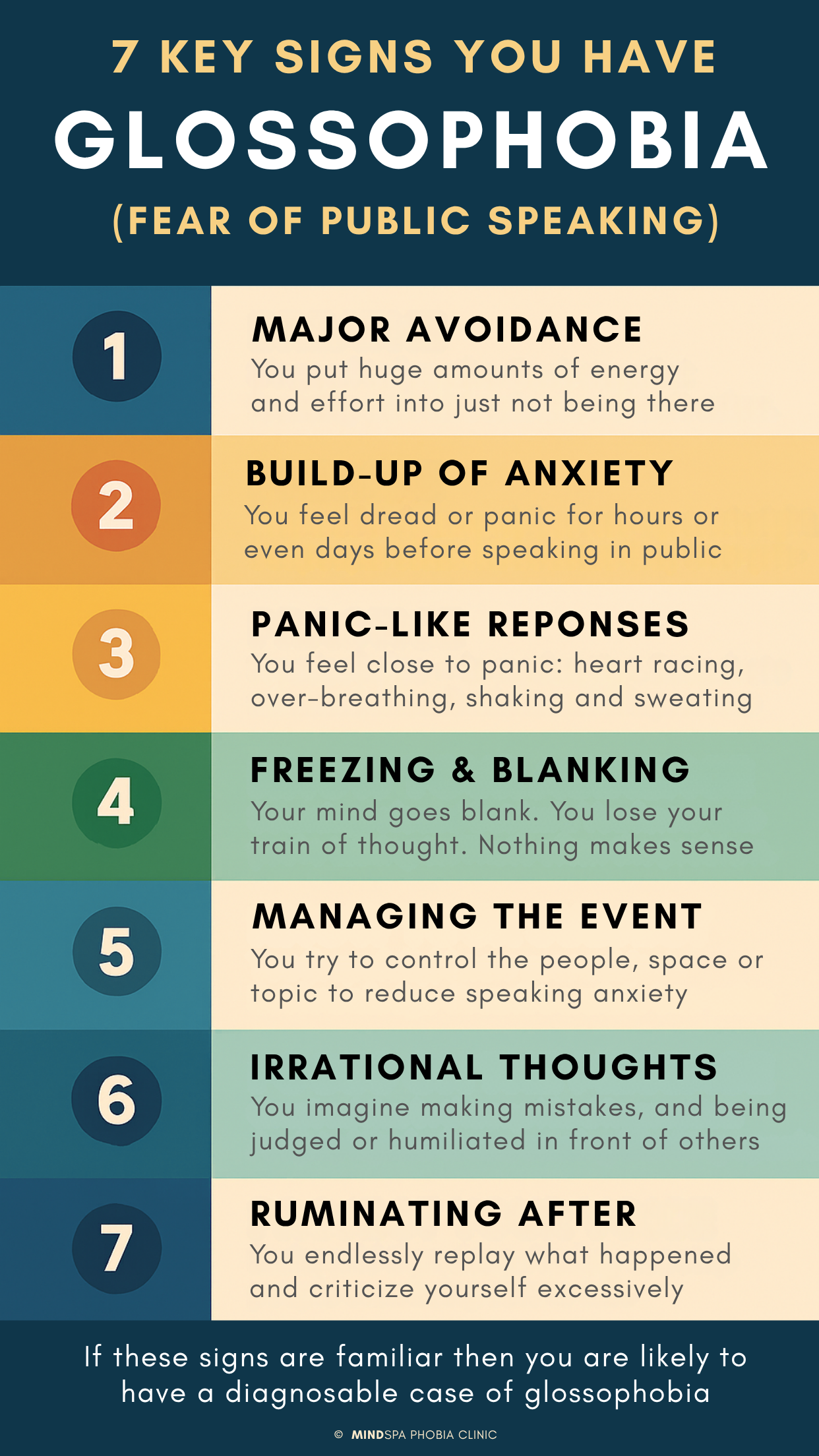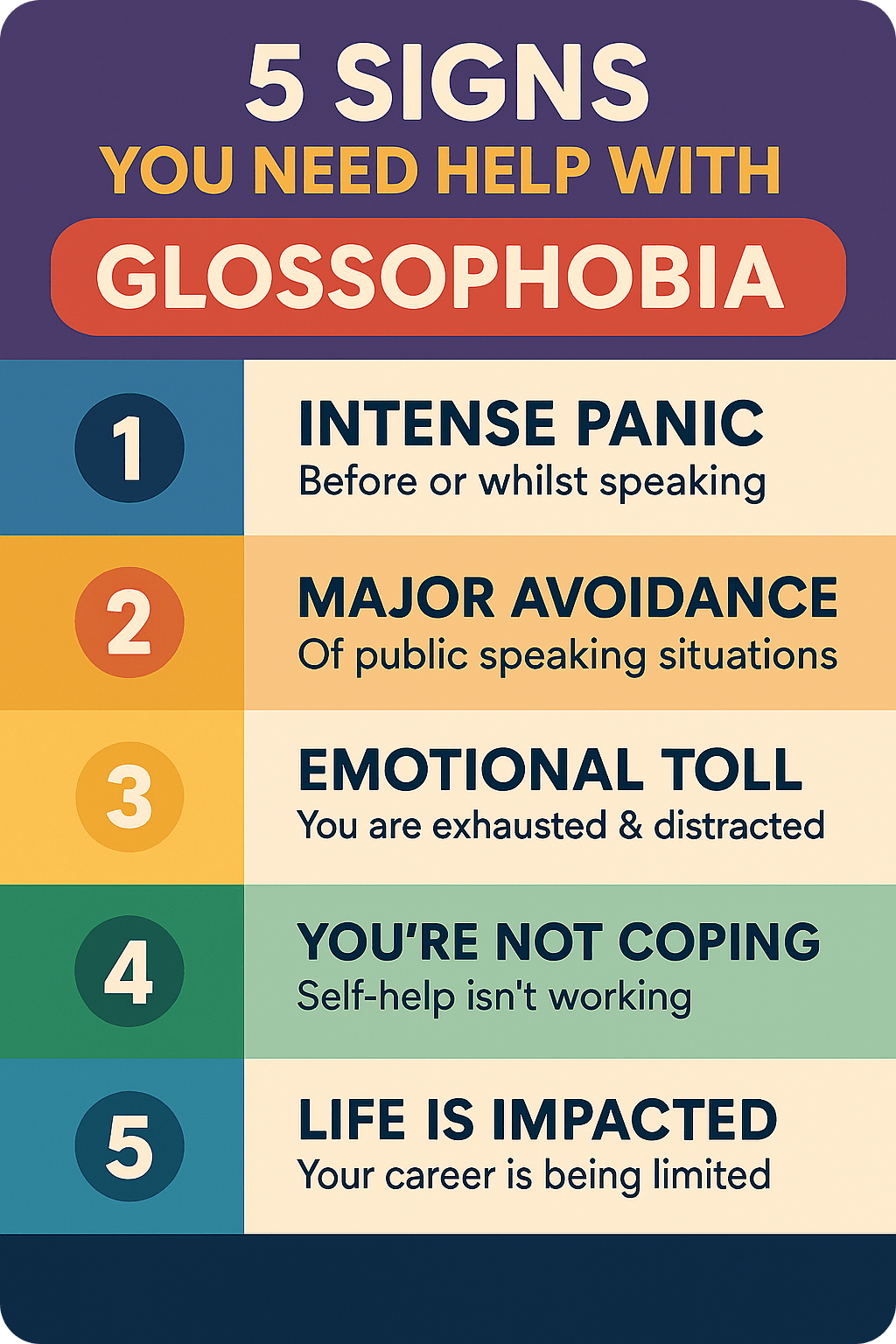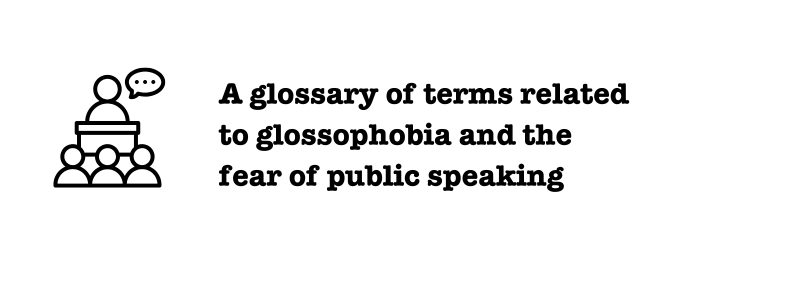Top 7 Tips To Overcome Public Speaking Anxiety
(and why they don't help much)
Public speaking anxiety advice often feels recycled: breathe, prepare, practice, know your audience, know your subject, focus on the message, project your voice. But when you are dealing with the white-knuckle fear of public speaking, these tips aren’t nearly as effective as they sound. Let’s break them down.
1. Breathe
Yes, it's good to breathe. Don't stop. But if you get to the point to where you have to try and manage your breathing, then it's probably already too late. The anxiety has already started to kick in. And if you try and focus on your breathing, you will lose focus on what you are talking about. And that's when the anxiety can spiral into full-blown panic.
2. Prepare
Prepare. Not a great insight. You need to prepare. Most people don’t fail because they didn’t prepare — they fail because they over-prepare, spending huge amounts of time and energy on a speech or presentation trying to control every detail to avoid the inevitable anxiety when actually speaking in public. Their speech then comes out unnatural and robotic, if it comes out at all.
3. Practice
Again, not a great insight. Of course you should practice. But practice is often presented as a cure-all. It isn’t. Practicing too much in private can backfire. Because you’re training yourself in a safe environment, you can feel ambushed when the real stressors — the audience, the stage, the eyes — appear.
4. Know Your Audience
This one sounds profound but often isn’t. You know who you’re talking to. If you’re giving a workplace presentation, you know it’s your colleagues. If you’re at a conference, you know it’s your industry peers. Being told to “know your audience” doesn’t actually lessen anxiety — it just reminds you that your audience exists and will be watching you. In fact, the more you think about who’s in the room, the more intimidating it can become.
5. Know Your Subject
This tip is equally redundant. If you’ve been asked to speak in public, it’s because you (hopefully) know your subject. Knowledge doesn’t automatically translate into calm delivery. Experts still choke, not because they don’t know their material, but because fear of judgment and performance pressure hijack their ability to express it smoothly. Anxiety isn’t about knowledge gaps; it’s about perceived social risk.
6. Focus on the Message, Not Yourself
This is good advice in theory — if only anxiety worked that way. Because anxiety hijacks focus. When public speaking anxiety kicks in, people focus inwards on what’s happening to them - the pounding heart, the sweating, their shaky voice and hands - rather than on what they are trying to talk about. So in that moment it’s almost impossible to force yourself to focus outwards on the message.
7. Project Your Voice
What does this even mean in practice? For many anxious speakers, “projecting” is impossible — the effort to force volume just highlights how shaky they already sound. Instead of “public speaking,” it turns into “public squeaking.” The advice assumes you can override fear with technique, when often the fear can make it difficult to talk at all, let alone “project”.
The Reality Behind These Tips
All of these strategies have some value, but they don’t touch the root of public speaking anxiety. They don’t help people overcome the hardcore dread and fear that accompany public speaking. The problem isn’t a lack of knowledge, preparation, or technical skill — it’s the way anxiety rewires your body and mind under pressure. Until that deeper issue is addressed - through specialist therapy - these surface-level tips can feel hollow and may even be counterproductive.
That's why at the Mindspa Phobia Clinic we don't bother with tips and tricks to overcome public speaking anxiety. We deal with the fear.
With our powerful and effective Public Speaking Program you can break free from stage fright, overcome public speaking anxiety, and regain confidence in every speaking situation.











